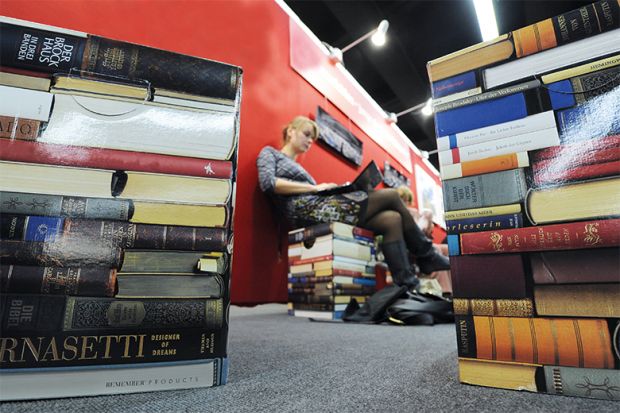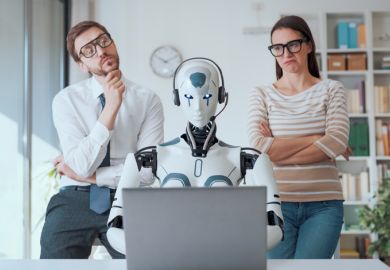The advent of the internet and social media has put a wealth of information – and other people’s opinions – at students’ fingertips. Twenty years ago, students would be expected to spend hours in the library digging through journals. While the internet has removed that obstacle to learning, more than just peer-reviewed articles can be found online.
A special issue of the journal Teaching in Higher Education has focused on the contribution made by higher education to expertise and knowledge in the age of “alternative facts”.
“We are now in a ‘post-truth’ era where conventional forms of knowledge and methods for validating knowledge claims are downplayed by those in power and where expertise – and the experts who hold it – are under attack,” write the issue’s editors, Neil Harrison, deputy director of the Rees Centre at the University of Oxford, and Kathy Luckett, director of the humanities education development unit at the University of Cape Town, in their editorial.
According to Dr Harrison, “the task of being a student has changed: from one of finding information to one of dealing with and assessing information”.
The guiding rationale of the special issue was that universities are still too slow to recognise this change and address it, he told Times Higher Education.
“It is a mistake to believe that just because today’s students grew up in a digital world they have all the skills they need to assess information; that assumption is part of the problem,” he said.
The other issue is how social media has changed the dynamic of information in our society, Dr Harrison added. “We've moved away from the idea of experts who assess information to one where the validity of a statement is based on the likes, retweets and shares it gets, rather than whether the information is valid.”
The first task of universities is to go back to basics and “help students to understand the difference between knowledge and information, and how knowledge is created, which is separate to how information is created”, Dr Harrison said. “Within [each] discipline, what are the skills needed to assess that?”
Many assume that schools or colleges are teaching this, but that is not the case, he added. “Academics should also be wary of the extent to which they themselves understand the new paradigms of knowledge creation,” Dr Harrison warned. They tend not to be digital natives, and may interact with social media in a different way from students.
Practically, students need to understand the different forms of information available – the difference between journal articles, books, blog posts and social media – and their differing credibility and authenticity.
“Students often mistakenly believe that because it’s in a book it must be credible, but anyone can write a book if they get a publisher for it,” Dr Harrison pointed out. “There is often very little checking of what’s in a book because it’s a commercial enterprise, rather than an academic one, unlike a journal article where you know it has been through a peer review process.”
Alison MacKenzie, a lecturer at Queen’s University Belfast and author of another article in the issue, on “digital literacy and the epistemology of ignorance”, agreed.
“For academics, it’s teaching students digital literacy: to know what a trustworthy article is, what makes it reliable and how you assess that. Teach them that a journal has gone through the peer review system,” she said.
“And students need to be taught to avoid using Google when doing academic work,” she said. Students have a lot of misplaced trust in Google, believing that the top five results in a Google search, or the articles that appear the most, are the most trustworthy, she added – but an algorithm that has nothing to do with academic merit creates the list.
“It’s because [students] are used to using [Google] and it’s so much quicker,” Dr MacKenzie said. “But they should be using the library; we need to encourage them to use library services instead.”
Dr Harrison added that another element is how to teach students the nature of an academic argument and constructing an argument, “helping them to navigate that line between opinion and knowledge”.
Dr Harrison highlighted a paper in the special issue by Jake Wright, a senior lecturer at the University of Minnesota Rochester, which, he said, showed that many students believe “there are two sides to every story, and everybody has equally valid opinions” and says that dismantling such an attitude is part of the solution.
“Take climate change: 99 per cent of scientists say climate change is a fact but 1 per cent of the fringe don’t. The danger is that they are given equal time and equal voice,” Dr Harrison said.
后记
Print headline: ‘Fake news’ or credible source?




